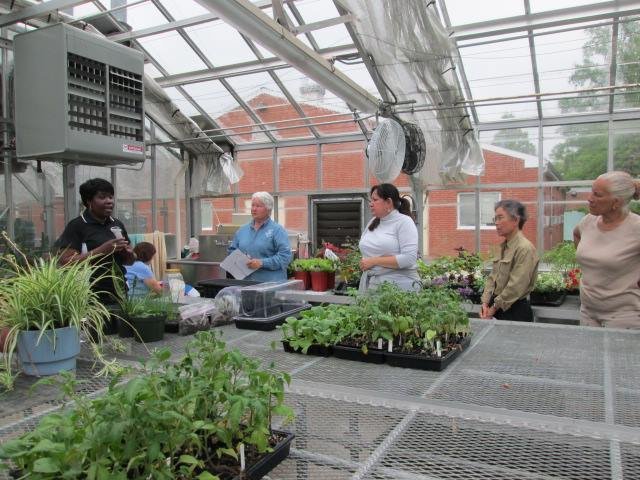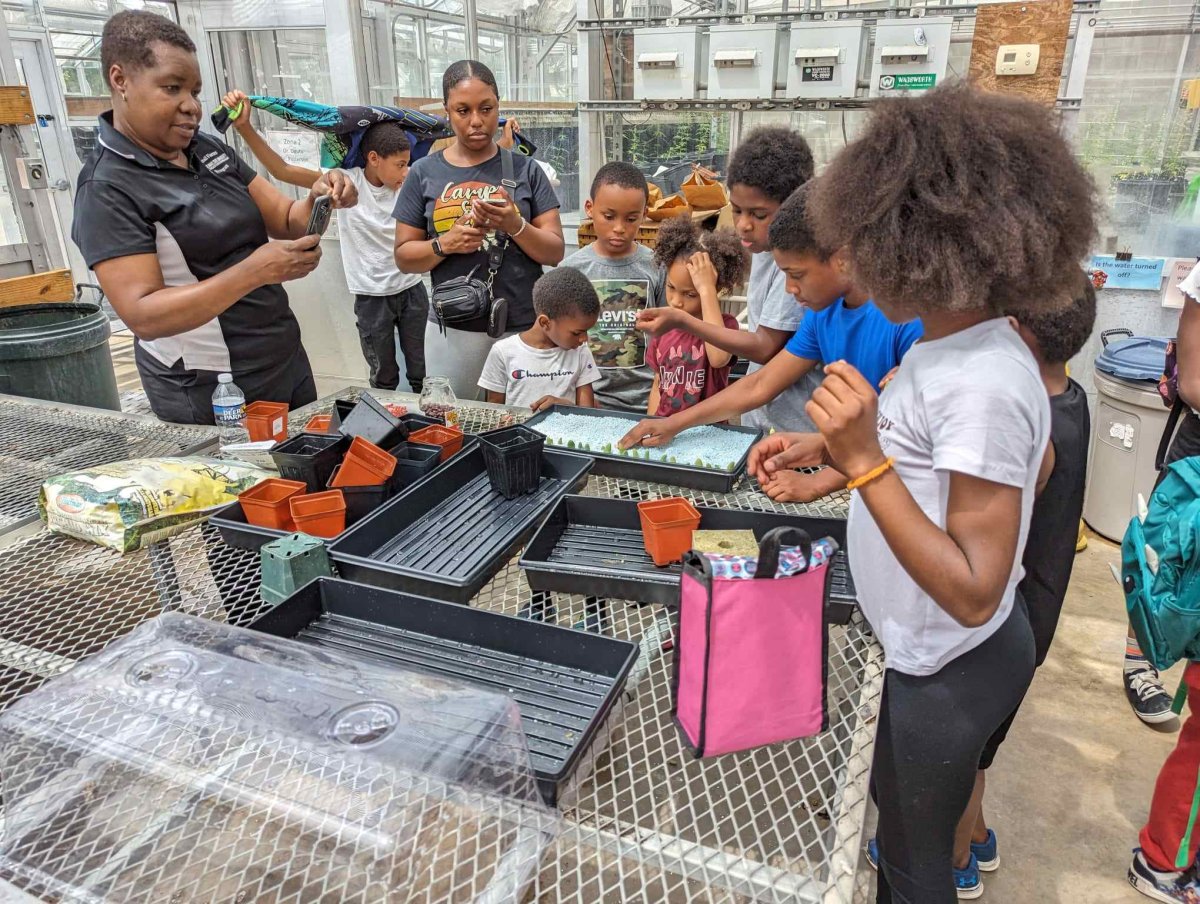AI-CLIMATE: Broadening Participation in Climate-Smart Agriculture and Forestry

In May 2023, the University of Minnesota was selected to lead a $20 million National Artificial Intelligence Research Institute under the leadership of Department of Computer Science & Engineering (CS&E) Professor Shashi Shekhar. Over the next five years, the newly founded AI Institute for Climate-Land Interactions, Mitigation, Adaptation, Tradeoffs and Economy (AI-CLIMATE) will work to leverage state-of-the-art artificial intelligence (AI) models to estimate carbon in forests and farms across the U.S., and ultimately create a decision support tool for farmers and foresters to determine which climate-smart practices they should utilize on their land.
While CS&E scientists are hard at work developing these novel AI techniques, another core group within the AI-CLIMATE Institute will have their boots on the ground with the end-users - farmers and foresters. With the ultimate goal of mitigating the effects of climate change, buy-in from individual farmers and foresters is crucial to improving the carbon footprint across the nation. Bringing a long history of pushing diversity and inclusion within the computer science field, CS&E Professor Maria Gini is the co-lead of this “broadening participation” thrust of the Institute.
“The external constituents that we are working with in farming and forestry typically do not have the same technological background as the groups we are used to working with in academia,” said Gini. “In these situations, it’s important to avoid taking on the attitude of, ‘We know best and we are going to tell you what to do.’ We want to make sure we are bringing farmers and foresters into the discussion so that this project can be mutually beneficial.”
In a country as geographically and culturally diverse as the United States, it is especially important to bring in as many different perspectives as possible. As computer scientists in the Institute work to develop a platform that delivers individualized recommendations to farmers, the broadening participation team will talk to farmers and foresters from diverse backgrounds in order to incorporate their knowledge into the final product. Horticulture Specialist Dr. Rose Ogutu has spent the past 13 years doing just that. As an extension specialist at Delaware State University (DSU), Ogutu develops programming for farmers in the region to share information and benefit from the latest and greatest research in farming practices.
“Extension services are about trust,” said Ogutu. “We always need to meet people where they are. That’s why we do farm visits and invite them to our facilities. They need to feel like they have a seat at the table and that they are being heard. Our research only works if they are willing to use it. We listen to them to learn about the key problems they are dealing with, and that is the basis of the work we do to help. We make sure our programming is catering to their needs and we are both learning from each other. That trust has helped us prove that they can lean on us to help with the new challenges presented by climate change.”
“In Minnesota, the Native American community will be a big part of our work,” said Gini. “Professor Heidi Roop has extension staff regularly visiting Native American communities in our state and we are excited to work with her on this project. We want to make sure that our approach respects their independence and cultural practices. We need to develop a trusting relationship and open line of communication.”
As a 1890 land-grant university, the majority of our students at DSU are part of under-served groups. Ogutu works closely with Native tribes and Black Americans on a regular basis and pushes to make sure these groups are involved with science-based programs and the latest technology. Their services include student research opportunities, K-12 programs, summer camps, and partnerships with nonprofit groups that help farmers in areas where the effects of climate change have been the most prevalent. The programs will now showcase the AI tools developed by the AI-CLIMATE Institute.

“We have a research farm that we use to showcase new techniques,” said Ogutu. “I would like that farm to be a place where we show the effectiveness of climate-smart practices. It would be great if some of the younger K-12 kids get involved in sciences as well. That is something we can measure over time and see the impact of our work today in 5-10 years.”
In addition to broadening participation within farming and forestry communities, Ogutu, Roop and Gini’s work will help develop and educate a diverse AI workforce. As AI continues to expand into the day-to-day lives of individuals and new business sectors, the next generation needs to have the skills to manage and advance this technology in the future. At the University of Minnesota, Gini leads a variety of summer camps aimed at getting women involved in the field. Going forward, she hopes to have undergraduate courses centered around the climate-smart AI practices developed at the Institute.
“Students are another huge group of constituents for the Institute - not just college students, but K-12 as well,” said Gini. “We want to encourage them to study any type of technology. Exposing students to our work will hopefully inspire them to get involved in climate change work in their chosen field. We are very committed to making sure we get more women into technological fields.”
Research of any kind remains hypothetical until it is put into practice. The AI-CLIMATE Institute is committed to building relationships with farmers and foresters to ensure their lab work translates into real-world results for their key constituents today and well into the future.
“It is all about respect,” said Gini. “We cannot assume that we are bringing all of the knowledge to this relationship with farmers and foresters. We have a lot that we can learn from each other and the focus of this effort is collaboration.”
“People have been feeling the devastation of climate change - they feel it, they know it’s there, and they want answers about what to do next,” said Ogutu. “At the end of the day, the researchers working on solutions for these climate change issues need to take their data from the fields of actual farmers. The relationships with those farmers are very important since they are the source of data. The AI-CLIMATE Institute is a good fit with everything I am already working on.”
Learn more about the AI-CLIMATE Institute in the latest issue of Soundbyte Magazine.